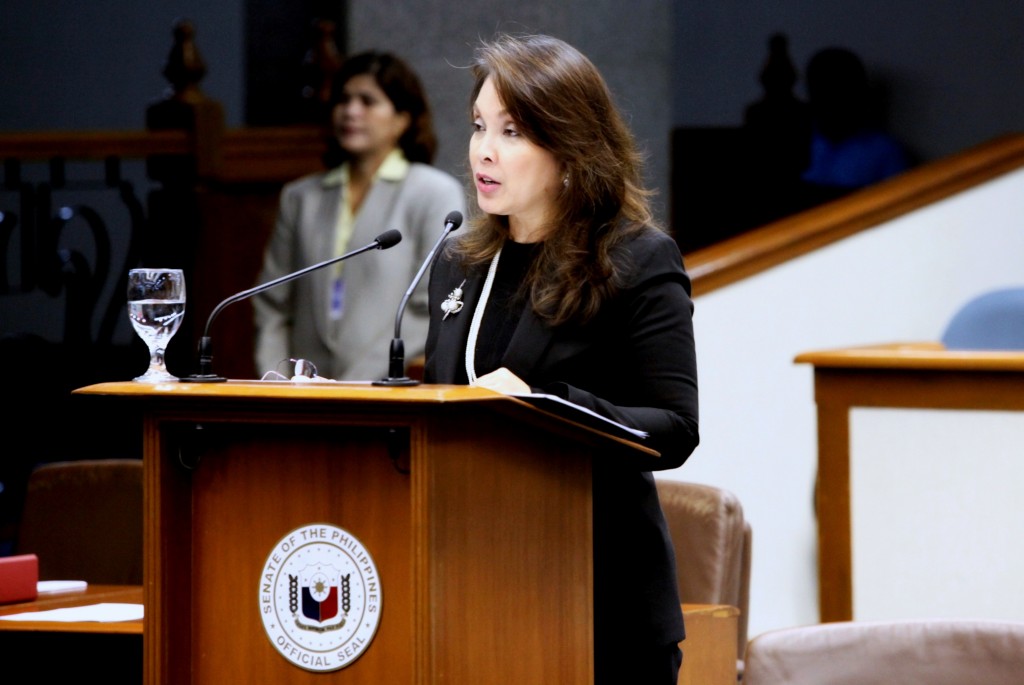Loren wants climate change advocacy turned into local action
Senator Loren Legarda stressed the importance of transforming climate change advocacy into local action, as she stepped into her new role as one of the commissioners of Global Commission on Adaptation (GCA), an international organization pushing for climate resilience in vulnerable communities.
“Everything that we discuss at the global level would mean nothing if not translated into local action that will be felt by the communities and the people themselves who are affected by the impacts of climate change,” she said at the launch of GCA in the Hague, Netherlands.
The GCA is jointly headed by former United Nations Secretary-General Ban Ki-moon, Bill Gates, and World Bank CEO Kristalina Georgieva. It is composed of 17 convening countries and 28 commissioners representing all regions of the globe and all sectors of development and industry.
The group said it “aims to elevate the political importance of climate adaptation and encourage bold solutions to become more resilient to climate-related threats, especially for vulnerable countries and communities.”
On its first year, the GCA will oversee the preparation of a flagship report that will be presented at the UN 2019 Climate Summit.
The report will set out the importance of “accelerated adaptation to climate risks, what new actions are needed, what must be done differently, and how governments, companies and citizens can be part of these actions.”
In a dialogue during the first meeting of the commissioners, Legarda said the GCA should guide nations into realizing that it made good socio-economic sense to mainstream adaptation and resilience in national budgeting processes.
But she said it should also be implemented by local governments.
Legarda said that in the Philippines, the national government empowered local government units and communities to contribute to mitigation and adaptation efforts through national adaptation grants.
This year, she said, four municipalities received close to $4 million for multi-year programs on climate-resilient agriculture, ridge to reef disaster risk reduction systems, ecological farming, and a climate field school for farmers and fisherfolk.
“We must also make sure that there is convergence of government’s best practices, public-private sector partnerships, academia and science to work for the most vulnerable and the poorest populations in the world,” she said.
Legarda identified a number of ways:
“First is to balance advocacy and action. Once this is achieved and there is sufficient financing, we can scale up and speed up the pace of global climate action,” she said.
“Second is to harmonize fragmented efforts. This Commission will be exceptional if it strives for harmony amid the disarray and fragmentation of global adaptation efforts,” she said.
“Third is to enhance local resilience. The Commission must endeavor to unlock the full potential of countries by enabling them to become adaptation experts. The development of a local climate change action plan is an example of how policies need to find fruition on the ground to build resilience in our communities,” she said.
